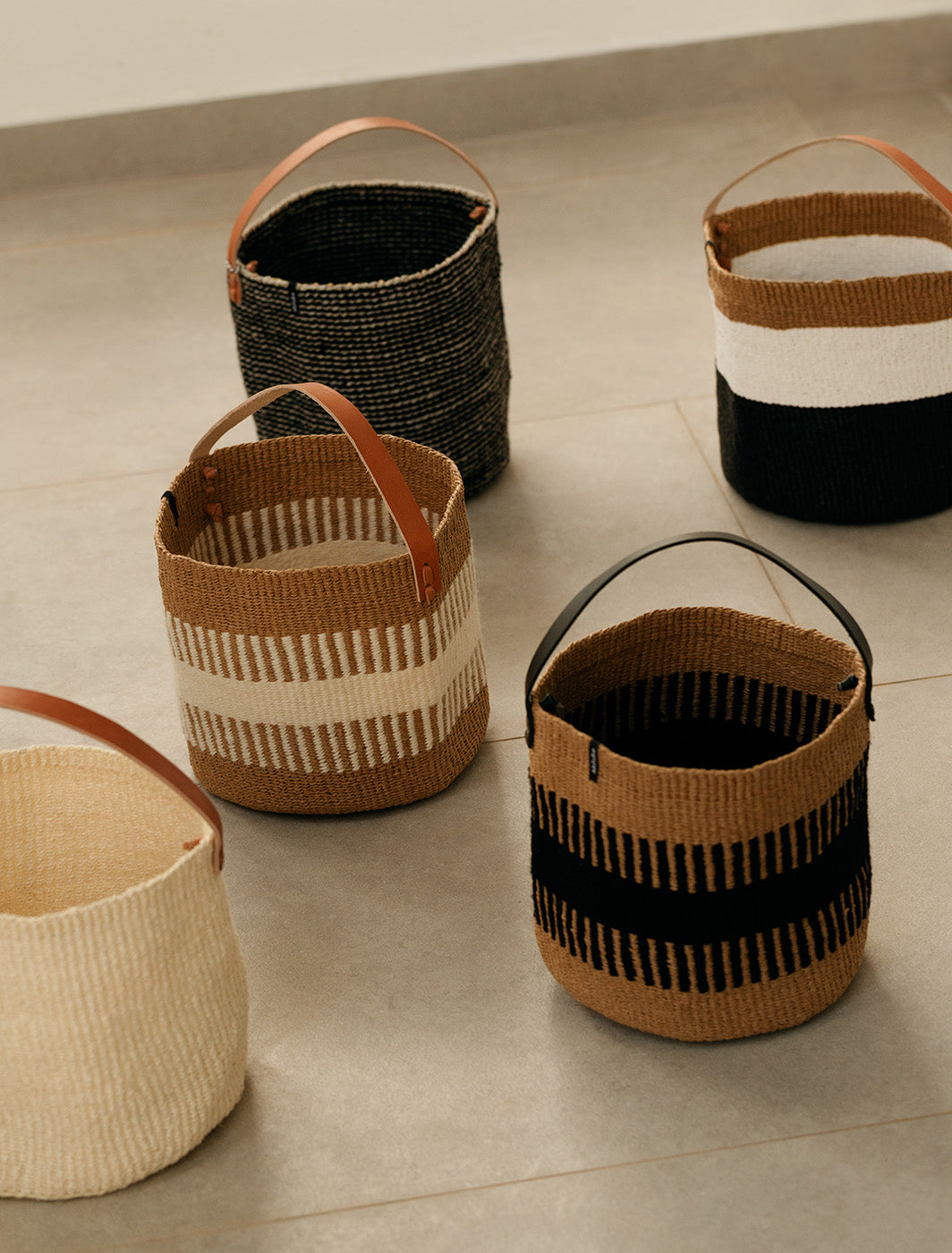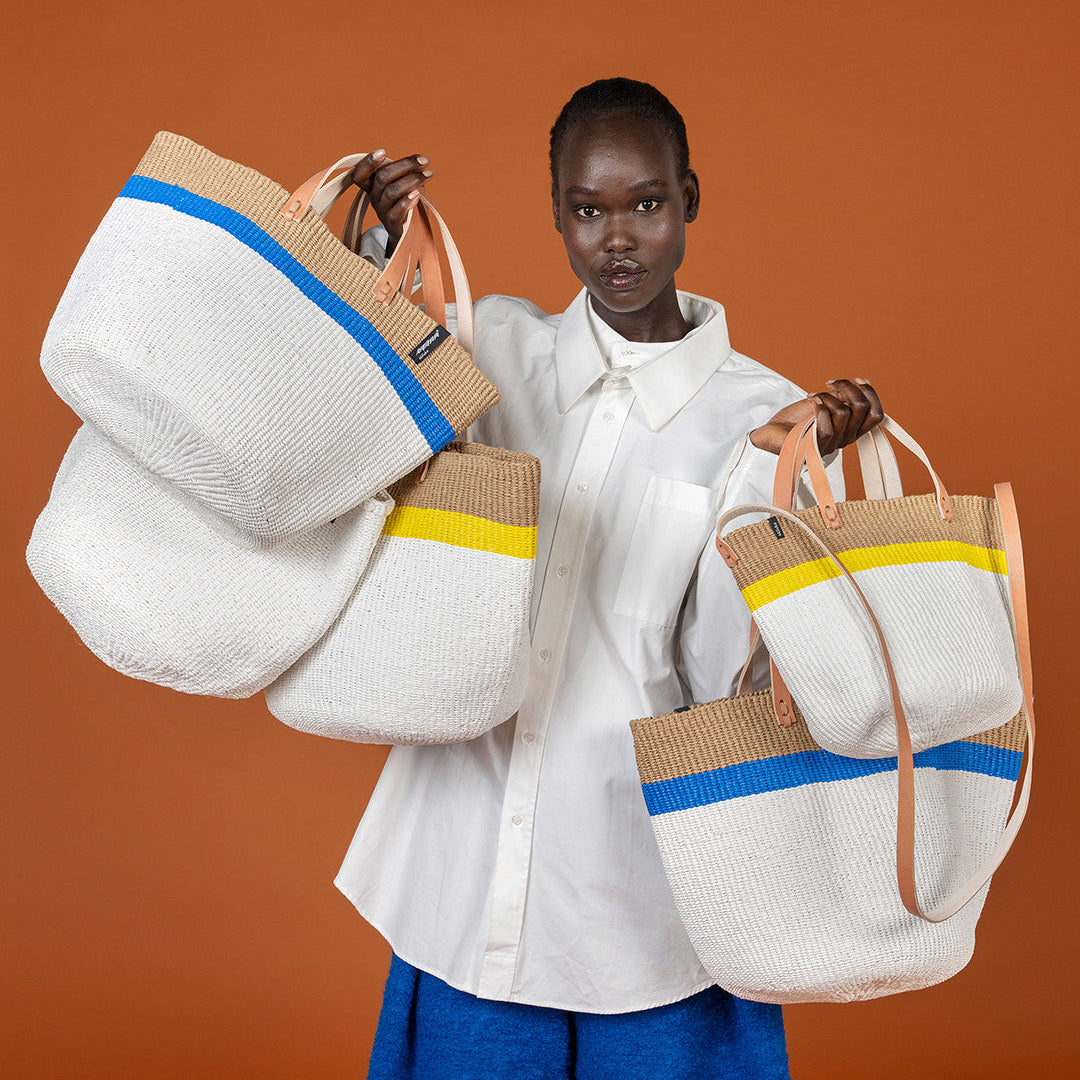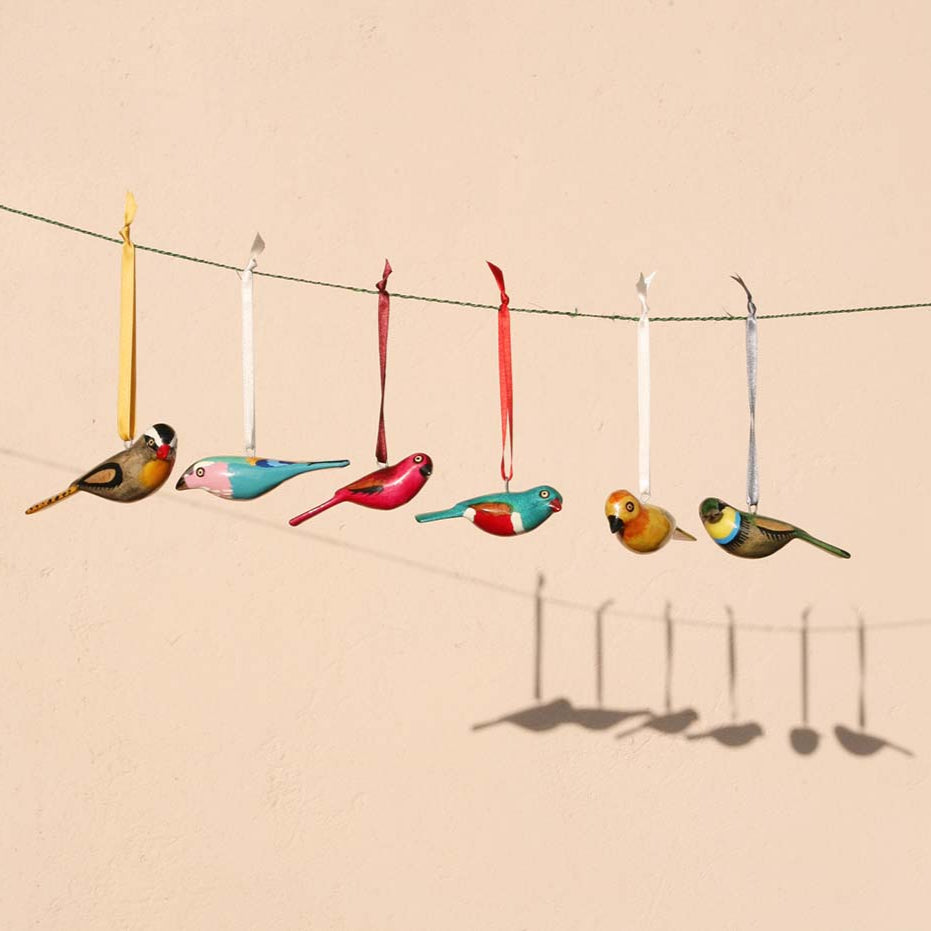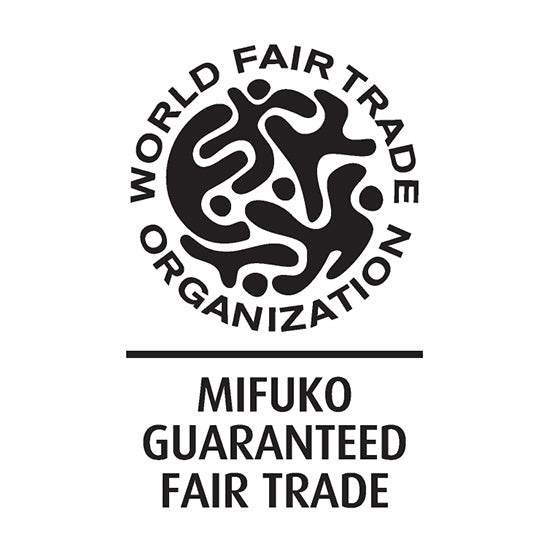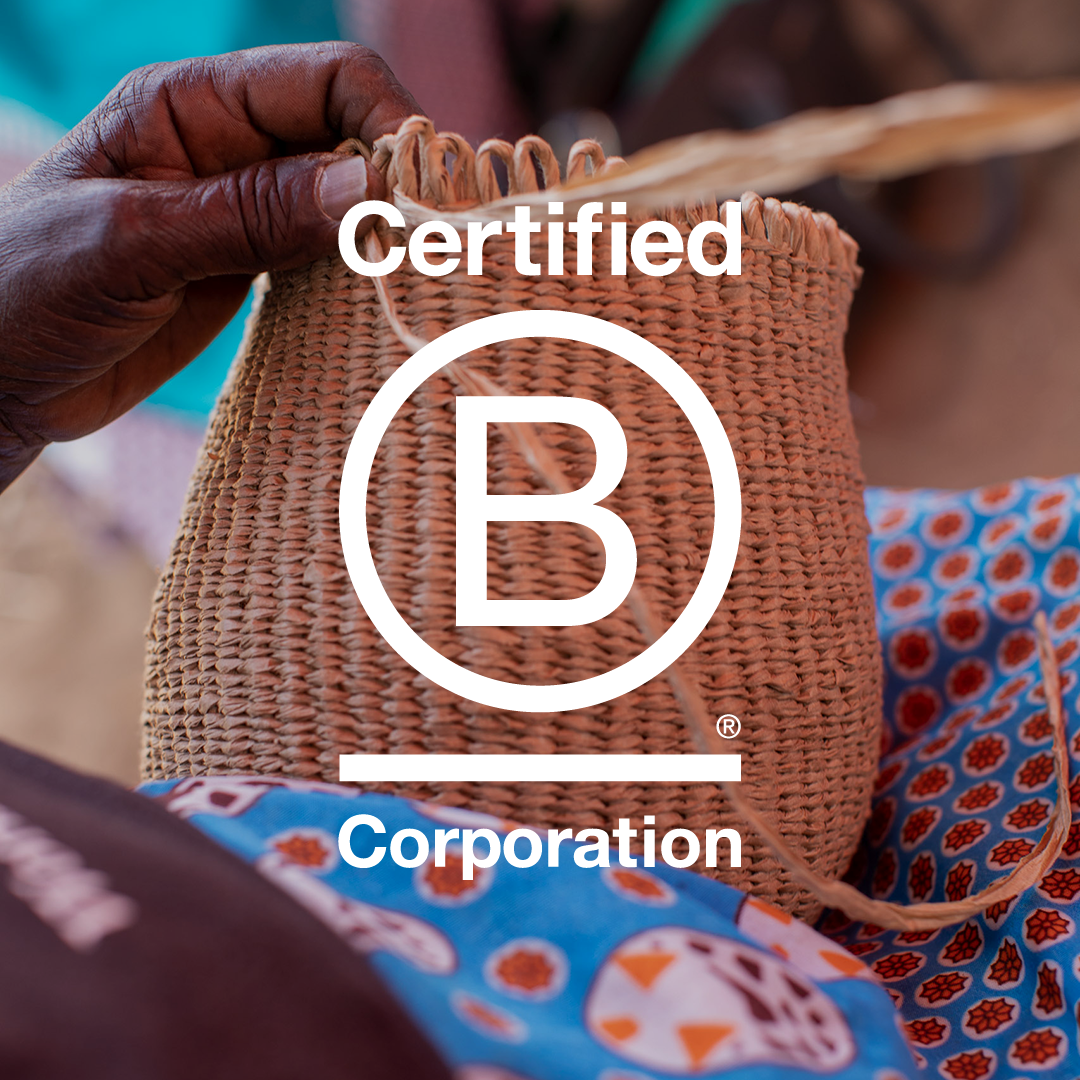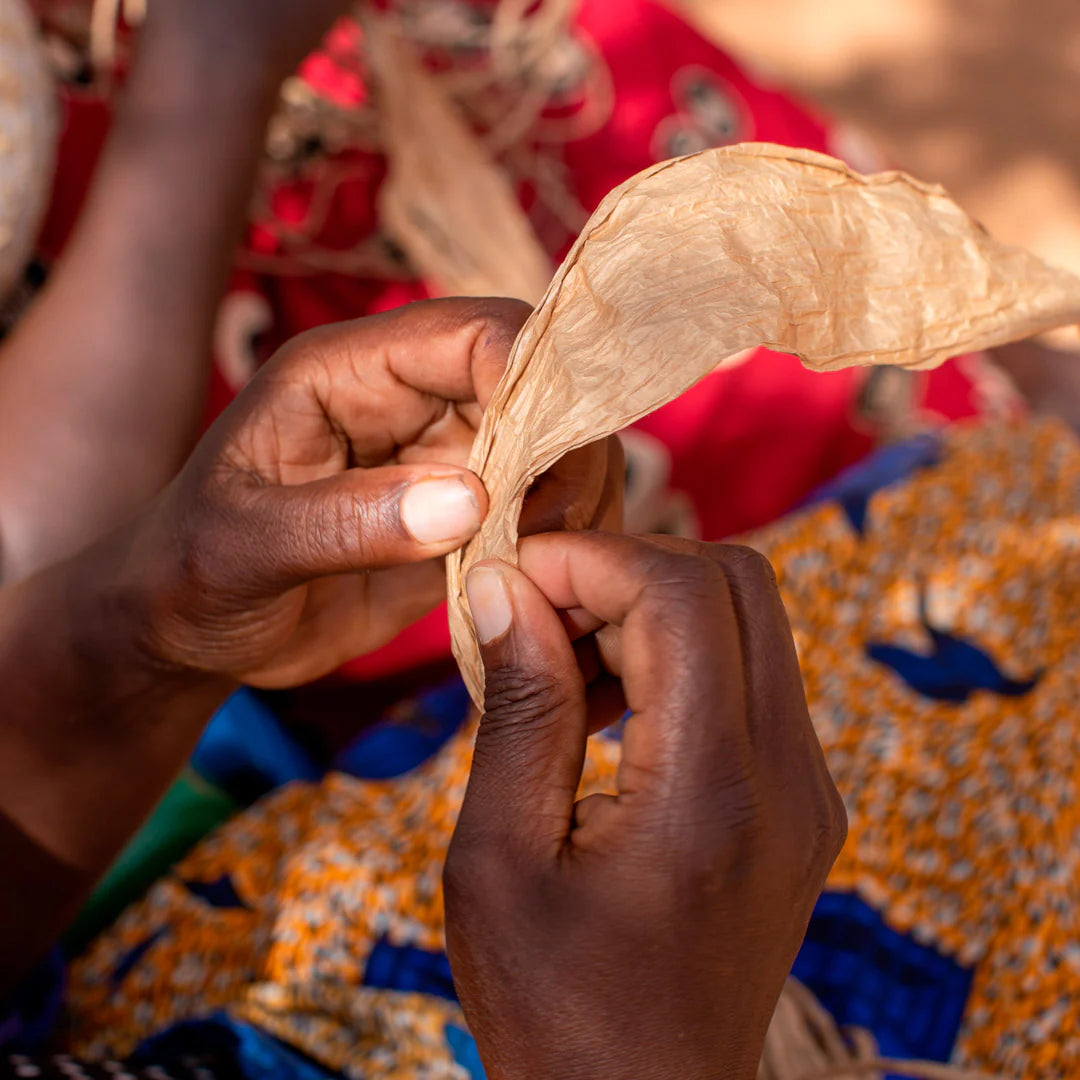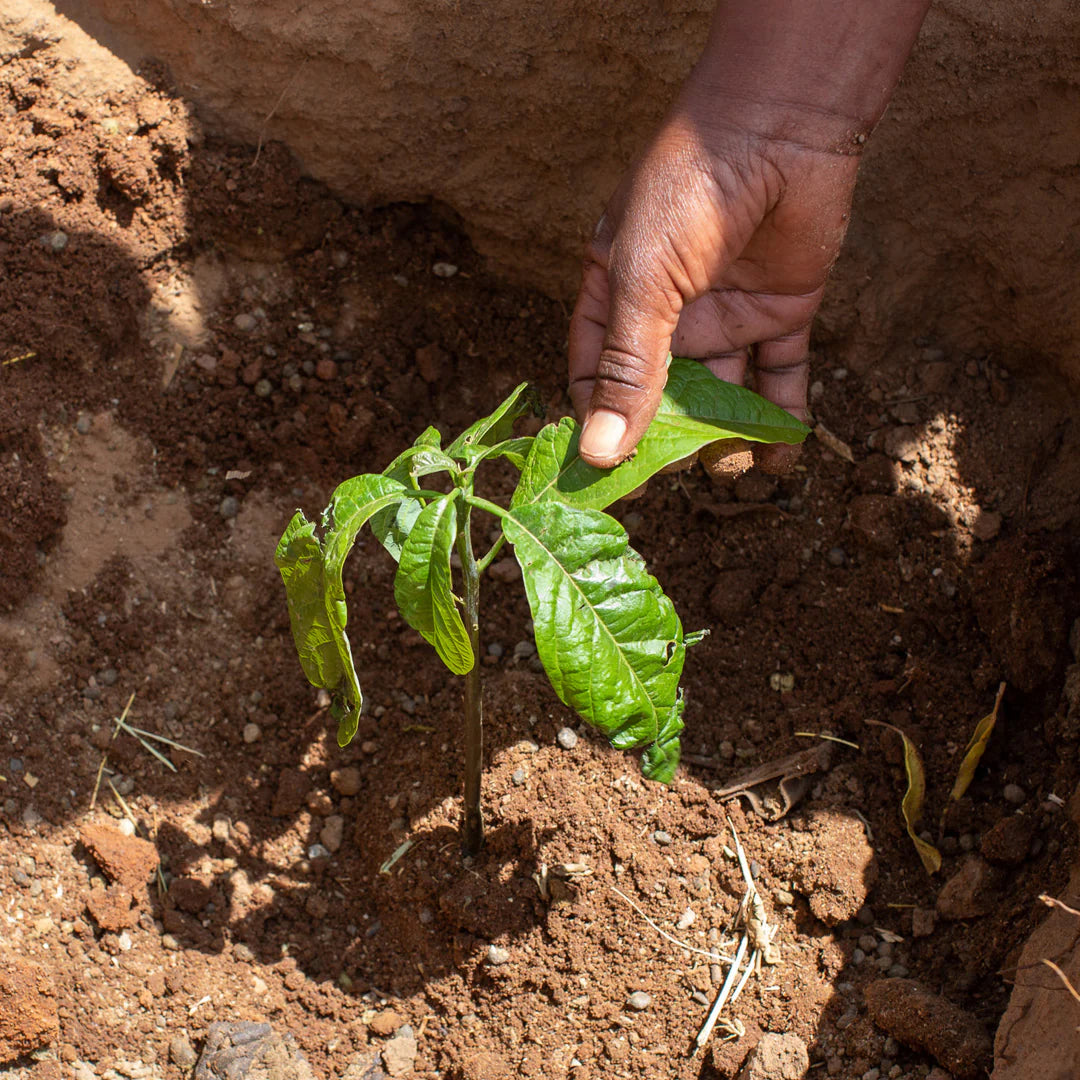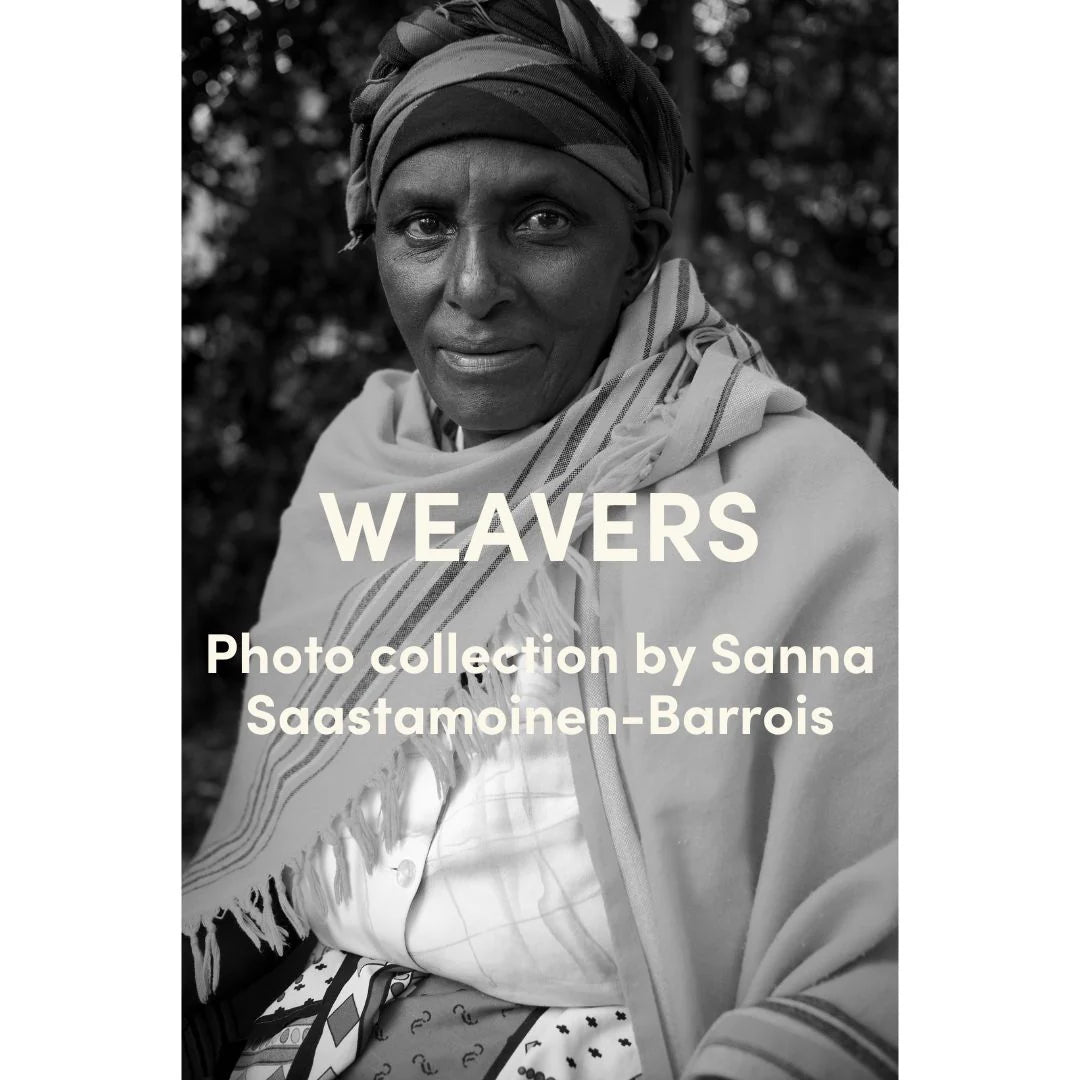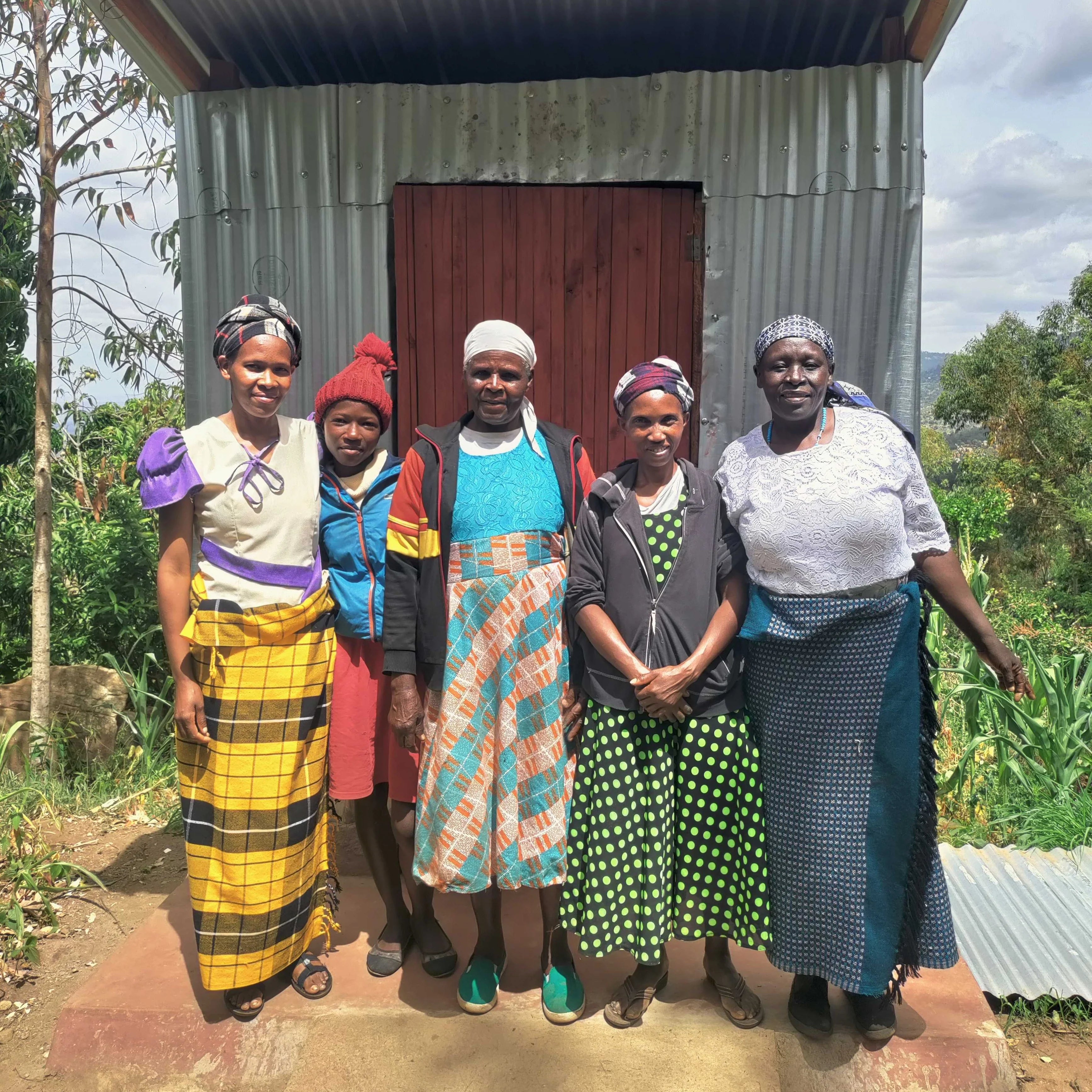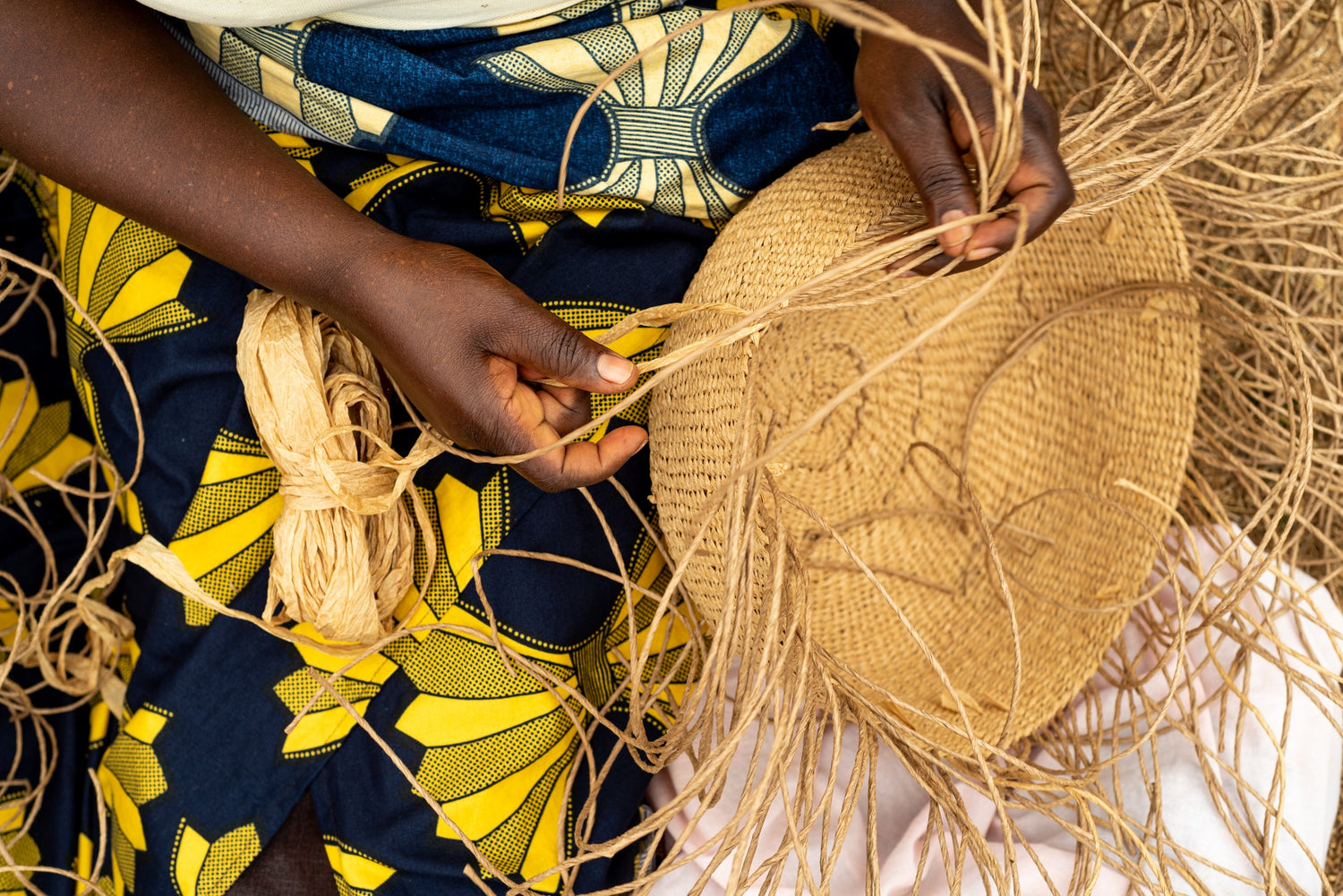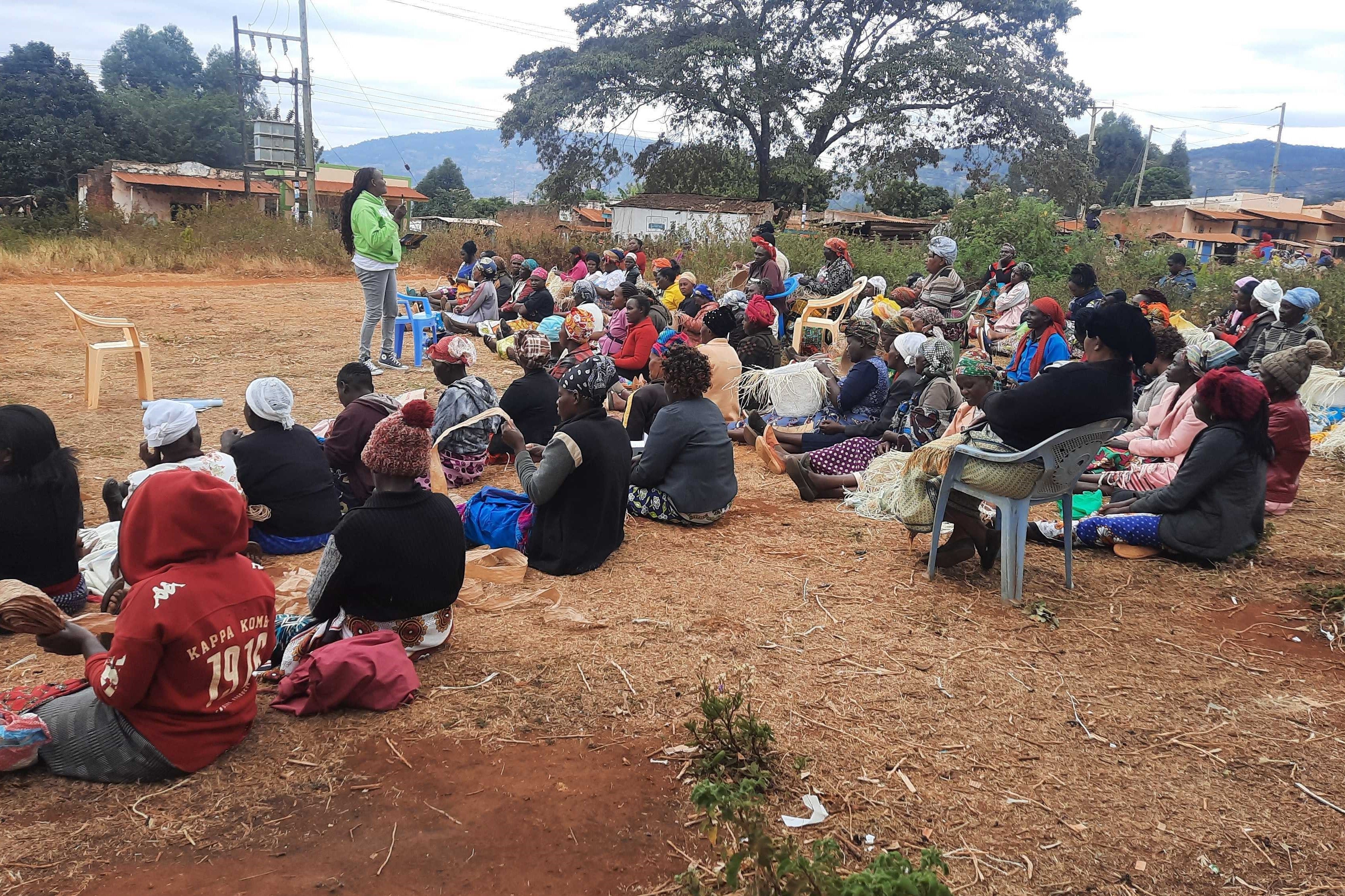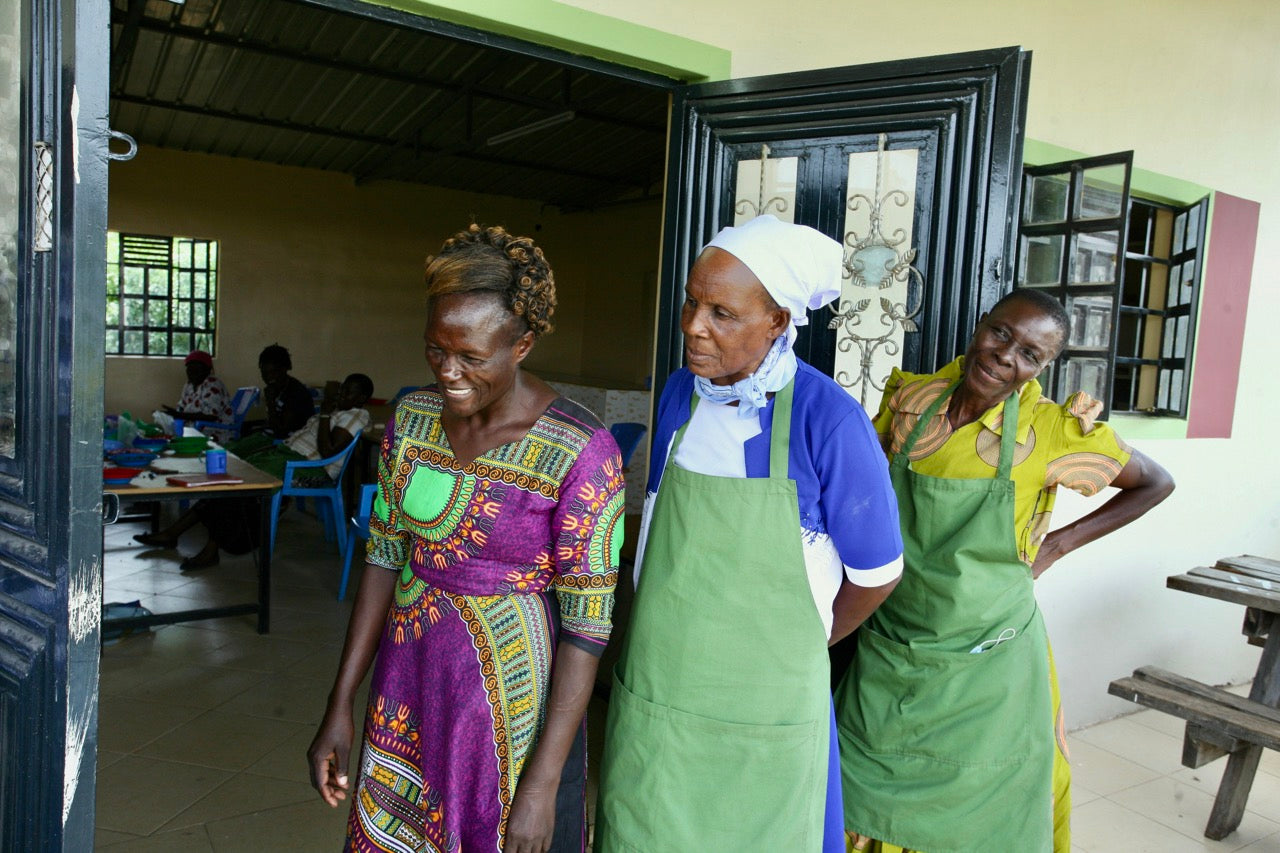A CHLOÉ AND MIFUKO PARTNERSHIP.
French luxury fashion house Chloé and Mifuko collaboration began in 2020 in the midst of the pandemic. Chloé’s motto ‘Women forward. For a fairer future,’ and Mifuko’s slogan ‘Work of hands and hearts’ complement each other in a unique way. In this blog post, we discuss the convergence of the two companies' sustainability principles.
Mifuko
A successful Finnish fair trade company.
French luxury fashion house Chloé and Mifuko collaboration began in 2020. Since then, Mifuko's artisans have been weaving baskets for Chloé, to which Chloé adds their own design elements to create a co-branded collection. Each product carries the name of the Mifuko weaver and the products carry the logo of both brands.

CHLOÉ’S HIGH AMBITIONS ON SUSTAINABILITY
A pioneer of sustainability in the fashion world, Chloé made a strong commitment 2 years ago with a clear shift toward a purpose-driven business model which embraces social and environmental sustainability. The French brand has high ambitions, reflected in its transparency reports on its supply chain and desire to invest in fair trade with communities, especially those that employ women.
As part of its long-term sustainability plans, Chloé set several measurable goals and actions based on four pillars: Fair and Equal Opportunities for people, Responsible Sourcing, Positive Impact on Communities, and Impact on the Planet.
Within its sustainability report for 2021, Chloé reported it has achieved or exceeded 18 of its 20 objectives set for 2021. This includes sourcing 59 percent lower impact products on average in each ready-to-wear collection and reducing its greenhouse gas emissions per product by 19 percent. They also exceeded their goal by 2% to donate 0.23 percent of revenue to initiatives supporting gender equality.
MIFUKO: FROM PROVIDING WORK TO CREATING SOCIAL IMPACT
Mifuko also published its 2021 Sustainability Report in May 2022. The sustainability principles cover social impact, environmental impact and product sustainability.
For the first time, Mifuko used the GHG (Greenhouse gas) protocol to calculate its environmental footprint. This helped to understand emissions in the supply chain and to work towards to reduce them. The goal was to minimise emissions from our operations and offset the mandatory emissions by donating to Mifuko Trust.
Mifuko’s co-founder and Head of Sustainability and Production, Minna Impiö, summarises Mifuko’s social impact, “Over the years, it has become increasingly important that we do more than simply offer women work. Since the artisans belong to self-help groups, which are also providers of loans and microfinance to their members, we actively support them by providing training as well as participating in sanitation and hygiene projects through the Mifuko Trust organization. We have learnt that when women are empowered, their families benefit and communities also develop.“
CARRIED BY COMMON INTERESTS
Mifuko is among Chloé’s fair trade suppliers that make up 13% of their ready-to-wear collections. In turn, the partnership with Chloé has helped Mifuko expand operations despite the economic challenges posed by the pandemic. The latest Chloé x Mifuko collection introduced a new material for Mifuko: recycled wool. Chloé has also released a short film, 'Women who weave' which illustrates the economic and social importance of basket weaving in the daily lives of women in rural Kenya.
In short, the collaboration inspires new products and creates visibility for Mifuko and it's Kenyan artisans’ incredible skills. The partnership also brings stability to the artisans as Chloé is committed to an annual contract. Thanks in large part to the collaboration with Chloé, Mifuko set up a subsidiary in Kenya without the need for external funding. Mifuko's subsidiary Punonta employs 20 people in Kenya, and 1,350 artisans weave baskets for Mifuko through self-help groups. The collaboration with Mifuko also attracted Chloé to Mifuko Trust, which they supported with a donation of €10 000. The money is used for the WASH and Grow! project to build ecological dry toilets and sanitation in rural Kenya amongst artisan communities.
In this video, Chloé x Mifuko, Aude Vergne (10’55), Sustainability Director at Chloé and owners of Mifuko, Minna Impiö and Mari Martikainen (12’45), share their thoughts about sustainability and their collaboration.
Minna Impiö summarizes her experiences of the collaboration, “Mifuko and Chloé have shared goals, we want to support women’s work and craftsmanship, and both companies are pioneers in bringing sustainability into every aspect of business. The improved resources that the collaboration has brought have helped us to further develop our operations in rural Kenya and the impact is very tangible in the lives of the artisans. Especially in recent years, when crop yields have been low due to insufficient rainfall during the rainy seasons, basket weaving has become a vital source of income for the artisans. There is a growing appreciation of craftsmanship and more and more young people want to join artisan groups.“





